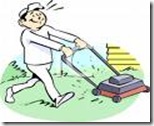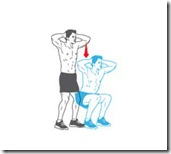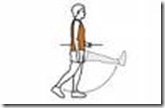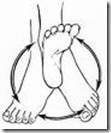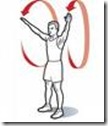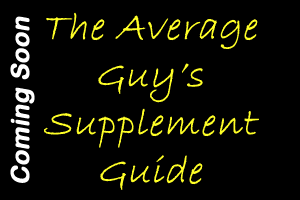Today's newsletter is going to touch on a topic that happens to all of us – sore muscles from workouts or other activities outside the gym. Most, if not all of us, have felt some sore muscles from time to time. I know sometimes clients will wander in for their workouts muttering about sore muscles from the previous workout. So, just what is muscles soreness? Why are our muscles sore? What is the physiology behind it and what can we do to prevent it or recover from it?
These are all great questions and I will attempt to answer them in a hopefully, concise manner. Muscles soreness is commonly referred to as DOMS – delayed onset muscle soreness. I am sure those of you who have experienced the soreness from a hard workout recall that usually the next day your muscles may be a little sore, but it is usually two days after a hard workout that the full brunt of the soreness kicks in. Wikipedia defines DOMS as: " is the pain or discomfort often felt 24 to 72 hours after exercising and subsides generally within 2 to 3 days. "
Muscle pain is a normal response to unusual exertion or stress on the muscle. This leads to an adaptation by the body which leads to greater strength and stamina as the muscle recovers and grows. There is a great article written by Johndavid Maes, and Len Kravitz, Ph.D. entitled: " Treating and Preventing DOMS " Even though this is a somewhat technical article, the section on Mechanisms of Injury is excellent and may help you understand the physiology behind DOMS. Some excerpts from the article include: "For many years the phenomenon of DOMS has been attributed to the buildup of lactate in the muscles after an intense workout. However, this assumption has been shown to be unrelated to DOMS. The symptoms of DOMS peak within 24-48 hours after an intense eccentric exercise bout when blood lactate levels have been at normal levels for a considerable amount of time." What this means in layman terms is: it was always believed that lactate acid accumulations in the muscle was the cause of the muscle soreness that lasted for up to several days after a vigorous exercise session. Research has proven this wrong. With muscle testing done 2-3 days after exercise, it was shown that lactate levels in the blood have been at normal levels for quite a period of time, so it wasn't the rise in lactate acid that was causing the soreness. It has now been proven in research that it is actually an
inflammatory process that takes place following eccentric exercise. This inflammatory process leads to metabolic waste products that exert effects on nerve endings causing muscle pain.
Can We Prevent DOMS?
So since we know what causes DOMS, what can we do to prevent it:
1) If you are not familiar to exercise, start gradually and don't overdo it.
2) Perform a warm up prior to any exercise session. This is not the same as stretching.
3) If you have not strength trained before, it is best to get help from a fitness professional to limit the effects of DOMS.
4) Allow for gradual adaption to occur over a period of weeks or months. The body must adapt to the stresses exerted. This goes back to #1 – don't overdo it.
What About Recovery from DOMS?
If we still experience DOMS what can we do to recover and get back to our exercises:
1) Warm baths with Epsom salts have been successful in helping to alleviate some of the soreness.
2) You can use the RICE method – rest, ice compression and elevation.
3) Active recovery to help increase blood flow. The worst thing you can do with DOMS is nothing. Gentle aerobic exercise stretching have proven to help alleviate soreness.
4) Massage, myofascial release with foam rollers both will help to reduce the soreness and help to restore muscle pliability.
5) Gentle stretching is thought by some people to help as well.
Although we are all going to continue to have the odd bout of DOMS, it is important to understand what causes it, what we can do to prevent it and also what we should be doing to help recover. It is also important to understand the difference between an injury and DOMS. DOMS is not something you are going to feel right away, hence the name Delayed. It is not a sharp, stabbing pain as with an injury. With an injury, you will need to rest that area and adjust the workout and possibly seek treatment. With DOMS, there is no reason to cancel workouts or rest completely. You may need to adjust your workout, decrease intensity and allow that area a little more recovery time before it is worked directly again – but movement is much more beneficial that nothing.
Till next time,
Narina
